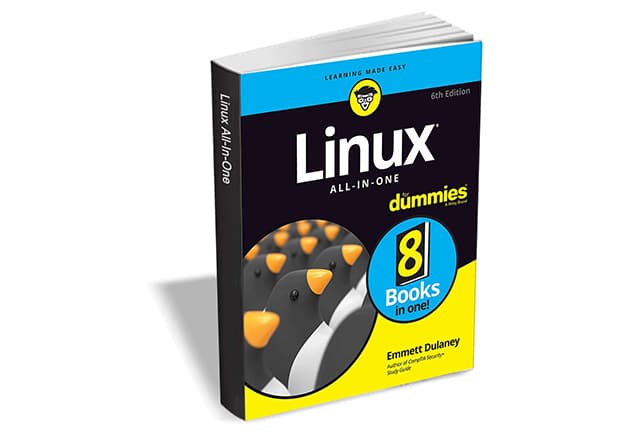
Get 'Linux All-In-One For Dummies, 6th Edition' ($30 value) FREE for a limited time
Linux All-in-One For Dummies covers topics such as getting up and running with Linux basics, desktops, networking, internet services, administration, security, scripting, Linux certification, and more.
Inside, over 500 pages of Linux topics are organized into eight task-oriented mini books that help you understand all aspects of the latest OS distributions of the most popular open-source operating systems in use today.

Ubuntu-based Linux Mint 19.2 'Tina' is here with Cinnamon, MATE, and Xfce
Happy Friday, y'all! What a great day it is. Yesterday, System76 excited the Linux community with a new 4K OLED laptop, and now today, a major Linux distribution sees release. After a very short beta period, Linux Mint 19.2 is here.
All Linux Mint releases are code-named after women, and 19.2 is no different. This version of the operating system is called "Tina," and I want to believe it is named after the lovable character on animated TV show Bob's Burgers -- although it probably isn't.
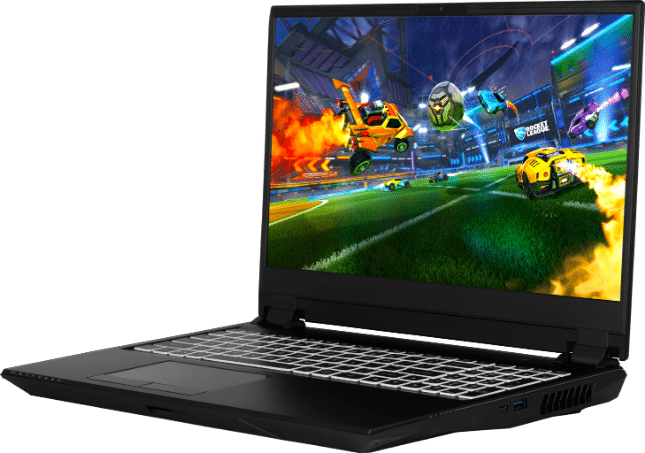
System76 announces 'Adder WS' Ubuntu Linux laptop with 4K OLED display
We are well beyond the point where a computer running a Linux desktop operating system is considered a second class citizen. Gamers, enthusiasts, business users, and more are increasingly turning to distributions based on the open source kernel. With Windows 10 being a bit of a train wreck, it's not hard to see why. And so, Linux users deserve premium computers for both work and play.
System76 has long been selling high-quality premium computers running Linux, and today, it is stepping it up a notch. Its new laptop, called "Adder WS," can almost be considered a desktop crammed into a notebook body. In fact, System76 calls the computer a portable workstation. Seriously, folks, it can be configured with some pretty impressive components. Where the thick laptop really stands out, however, is with its insane 15-inch 4K OLED display. When coupled with a RTX 2070 GPU, it becomes a visual powerhouse.

NordVPN brings WireGuard-based NordLynx to Linux users
NordVPN has announced an important new option for users of the Linux version of its eponymous VPN tool. The company is introducing a new technology called NordLynx which is based on the WireGuard protocol.
The company says that it successfully combines the highspeed connection offered by WireGuard with NordVPN's own privacy-protecting double NAT system.

Linux Lite 4.6 RC1 is here
Summertime is great, isn't it? I mean, who doesn't like fun in the sun? Many, actually. While I do enjoy the outdoors and the beach, I am certainly more comfortable in front of a computer. And I am definitely not alone. If you are the same way, don't apologize for it -- embrace it! There's nothing wrong with being a homebody.
For instance, today, rather than go outdoors and risk being injured by the sun, why not install a Linux-based operating system instead? Hell, get even nerdier and geekier and install a pre-release Linux distro! There's a new such OS available for testing that you should try -- the Ubuntu-based Linux Lite 4.6 RC1.
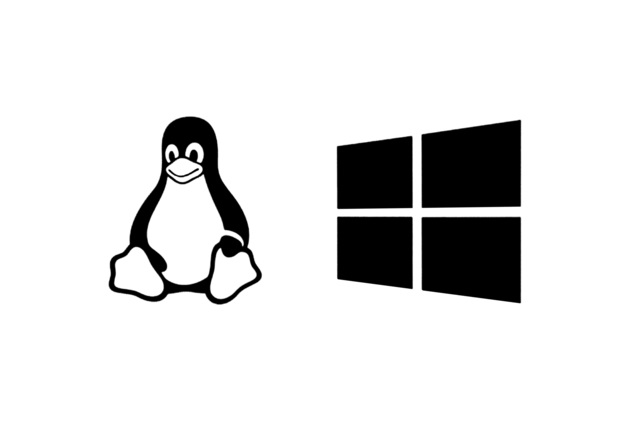
Windows 10's WSL 2 now lets you add a custom Linux kernel and enjoy localhost access
For Windows 10 users looking to install a Linux-based operating system within Windows, WSL -- Windows Subsystem for Linux -- was a blessing from Redmond. And things are just getting better and better.
The latest Insider build of Windows 10, Windows 10 20H1 build 18945 includes Windows Subsystem for Linux 2 (WSL 2) with a couple of key enhancements. Not only are you now able to gain localhost access to network resources, you can also make use of your preferred Linux kernel.

LibreELEC 9.2 ALPHA Kodi-focused Linux distro now available for PC, Raspberry Pi 4, and more!
If you are someone that uses LibreELEC to consume media, I have some really good news -- 9.2 ALPHA is here! Yes, the Kodi-focused Linux distribution has a new pre-release version for PC (x86_x64) and ARM-based systems such as the all-new Raspberry Pi 4.
Unfortunately, the Raspberry Pi 4 experience is still deficient, lagging behind other platforms. This is to be expected, as the hardware is so new -- it should be perfected for the final release. With that said, it is usable on Pi 4 with some caveats.

'Critical' vulnerability discovered in VLC on Linux and Windows -- but VideoLAN says it is not reproducible
Reports have emerged of a security bug in the Windows and Linux versions of VLC, making it vulnerable to remote-code execution via malicious videos. But although German and American security experts have branded the flaw as "critical", VLC-maker VideoLAN is downplaying things.
In fact, more than downplaying the vulnerability, VideoLAN is flat-out denying that it exists, with the software developer dismissing it as "fake news". [UPDATE: the vulnerability has now been pretty much debunked]

Debian-based deepin 15.11 Linux distribution now available for download
deepin is the most beautiful desktop operating system on the planet, besting both macOS, and Windows. Hell, it is even prettier than all other Linux distributions too. And yes, that matters. While an operating system shouldn't impede productivity or behave obnoxiously, it should inspire the user. deepin does this.
Today, the Debian-based deepin 15.11 becomes available, and it looks like another winner. While not radically different from deepin 15.10, it has enough bug fixes and additions to make it worthwhile. For instance, even though optical discs (CD, DVD, Blu-ray, etc.) are dramatically declining in popularity (near obsolete), the deepin devs have intergrated disc-burning into the distro's file manager. More exciting, however, is cloud sync for Control Center, which will make it easier to restore settings on a fresh installation or when logging into a shared machine.

Ubuntu-based Linux Mint 19.2 'Tina' BETA is here with Cinnamon, MATE, and Xfce
Linux Mint is an operating system based on the wildly popular Ubuntu. It comes with some interesting tweaks that many users appreciate, making it a popular choice in the Linux community for both beginners and experts alike. It is stable, easy to use, and has a well-designed Update Manager that puts many other distros to shame.
Today, Linux Mint 19.2 BETA is finally released. Codenamed "Tina," it will be supported until 2023 -- long after Windows 7 support ends in January of 2020. In other words, when it achieves stable status, Linux Mint 19.2 should make a great replacement for Windows 7.

AMD Ryzen 3000 causes boot problems for some newer Linux distros
Just last week AMD launched its latest Ryzen 3000 series of CPUs. The third-generation Ryzen chips are the first to be based on 7nm technology, but there is a problem for users of some Linux-based systems.
For distributions based on newer versions of the Linux kernel, an issue renders systems unable to boot. Some users have managed to patch the systemd component with an older version to allow successful booting, but a BIOS update from AMD is what's needed.

Don't buy the faulty Raspberry Pi 4 -- get a different Linux-compatible single-board computer instead
Raspberry Pi computers are pretty damn great. Not only are they small and inexpensive, but they are ideal for tinkering and learning. And yes, they can serve as excellent media boxes thanks to the Linux-based LibreELEC. With the Raspberry Pi 4, however, it is finally powerful enough to serve as a true desktop computer -- prior models were capable, but offered woefully slow desktop experiences.
With all of that said, surely the Raspberry Pi 4 is highly recommended, right? Actually no. Sadly, we must warn you not to buy this seemingly solid piece of hardware. Unfortunately, it has one massive faulty aspect, meaning you should probably pass on it.
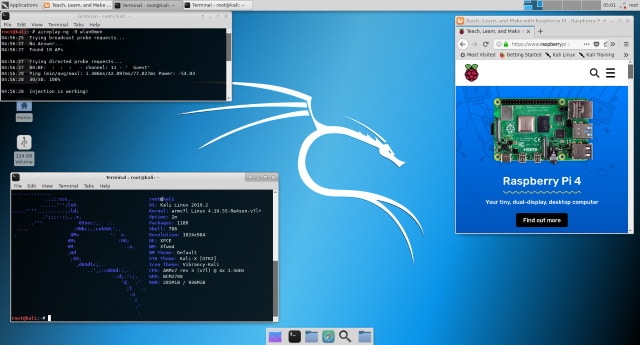
Kali Linux arrives on Raspberry Pi 4
Offensive Security has released Kali Linux for Raspberry Pi 4.
The new build of the security-focused distro comes just two weeks after the launch of the Raspberry Pi 4, the most powerful version of the mini-computer yet. Offensive Security says that the new build takes advantage of everything the Pi 4 has to offer.
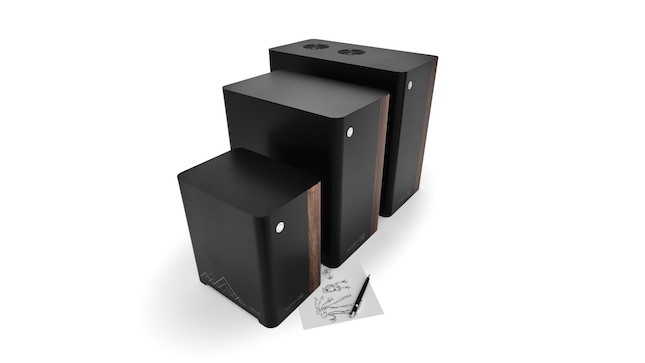
System76's USA-made and Ubuntu Linux-powered Thelio desktop now available with 3rd gen AMD Ryzen processors
Fans of Linux have long coveted System76 computers, as they come with Ubuntu pre-installed rather than Windows. After all, buying one of these computers is a great way to support the Linux community. Nowadays, in addition to Ubuntu, the company also offers its own Ubuntu-based operating system called Pop!_OS.
With the System76 "Thelio" desktop PC, even more people became interested in the company -- beyond Linux enthusiasts. Why? Because it is made right here in the good ol' USA. People that take pride in being an American often look for USA-made products (something that is getting increasingly harder to find), and System76 began filling that need.

Debian 10 'Buster' Linux-based operating system finally available for download
Debian is one of the most important operating systems, as so many other Linux distributions (such as Ubuntu) are based on it. In other words, it is part of the foundation that holds up many distros. With that said, it is a great operating system in its own right -- many folks depend on it daily.
Today, Debian reaches a significant milestone -- version 10. Yes, Debian is finally in the double digits. Believe it or not, development of Debian 10 (code-named "Buster") took more than two years! In fact, more than 60 percent of all packages have been updated since its predecessor. Probably the most significant update, however, is Wayland finally being the new default display server for the GNOME desktop environment.
